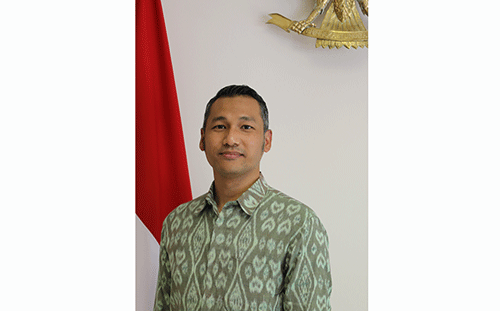A big benefit of a clean school is that it guarantees parents that their children are learning in a healthy environment. The advent of Covid-19 has reminded many of how crucial cleanliness is, and how illness can spread if places of work and learning are not kept sparkling.
When looking for the perfect school for their children, parents consider many factors. One of these critical factors is the sanitation and cleaning standards in schools. Clean schools are one of the parents’ standards, as their children must spend a significant part of their lives there.
By reducing the risk of illness, children can improve their academic performance, as illness is a major cause of student absenteeism. These were the views of Ingenesia Tjazirapi.
Tjazirapi, known as Tjiru, counts her blessings every time she swings her mops or pushes her brooms around the corridors of the Bethold Himumuine Primary school in Katutura. Her joy comes from the fact that she is a civil servant – and in her own words, the government knows how to take care of its people.
She believes a school is where students, staff and teachers spend most of their time and a child’s entire learning experience might be negatively impacted if the school environment is unclean or untidy. When schools are clean and orderly, students can concentrate on their work.
She further said keeping your school clean can assist in keeping your teachers and students healthy, reducing the number of times they will miss school days and lessons.
One lucky day
After leaving formal schooling due to pregnancy, the Windhoek-born mother of five has been doing odd cleaning jobs as a domestic worker. All along, she has been applying and waiting for her opportunity to join the public service.
One momentous day, she walked out of her house to news that the cleaner at the school – just across the road from where she lives – was no longer coming back to work. As a temporary measure, the school’s principal asked her to step in for assistance.
“I am yet to get my full-time employment contract, but the peace of mind that I have had for the past three years is unparalleled,” Tjizirapi told New Era this week.
Queried as to why she has been so hell-bent on wanting to work for the state, Tjizu uttered what many on this page may have said before.
“There is no place more secure to work than the government. More so when you come short in terms of your educational achievements like me,” she said.
She maintained that being a mother gives her joy – just being around children, especially those in grades zero and one, and helping them with petty things like tying their shoe laces or putting their lunchboxes back into their backpacks after lunch.
She does a lot whenever she is taking a break from her daily grind, she said.
“It is like my motherly instincts just kick in every time I step into the school grounds,” she revealed with a chuckle.
The challenges that come with her job are quite a lot but they are insignificant, as they come with the job and are the same for any cleaner at any school any day.
“Kids will always be kids – and again, being a mother, I can only complain about what kids do to a certain extent. Whatever they do is what my children do at home half the time,” she said.
Patience
These, she said, are petty things like littering and spilling food and drinks on surfaces that ought to be clean.
Another challenge, she said, is the income, which she hopes will improve with the coming of a full-time contract.
On the perception that public servants are lazy, Tjizu holds a contrasting view.
“I am surrounded by teachers – and to me, they are the busiest lot in the whole of government. I still struggle to fathom the degree of their patience – let alone their tenacity in view of the fact that they have to deal with other people’s brats on a daily basis,” she maintained.
She has it that she cannot even think of leaving this job or going for retirement because, in essence, she has not even started.
“I want to get on the job. I am fairly young and still have a good 25 or so years before I can think of retirement. But what is certain is that I will be going for retirement after serving in the government – no other place,” she revealed.
On her bucket list, apart from landing a job, is keeping her dream job and ensuring that through the gains she meets her goals of buying livestock and affording her kids’ education.



